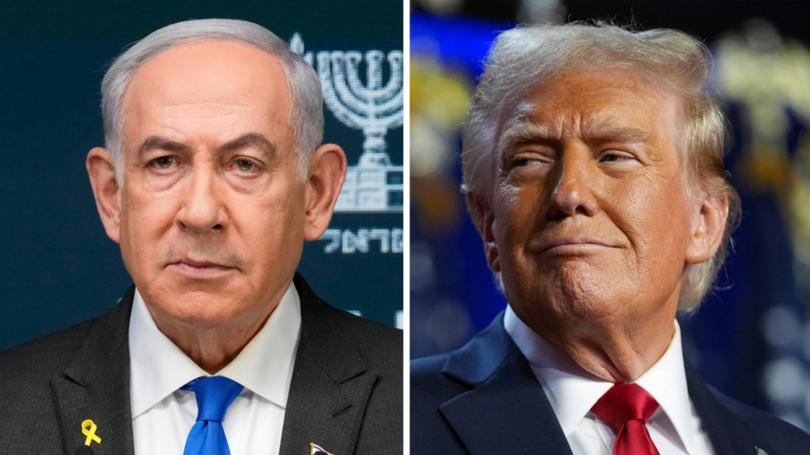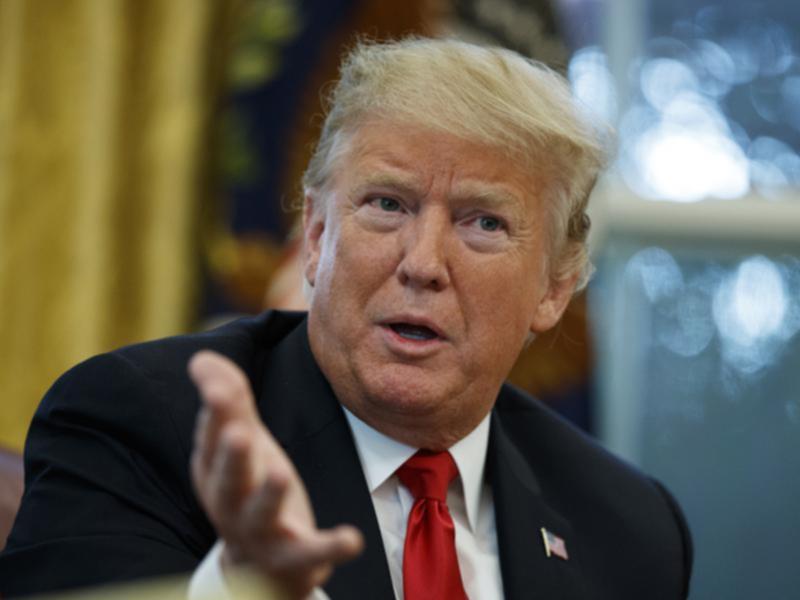BRET STEPHENS: The Israeli right may soon be disenchanted with Donald Trump
BRET STEPHENS: The most interesting detail of the Israeli and Hamas hostage and ceasefire deal isn’t in its terms, which mainly resemble what’s been on the table for months, it’s the way the deal was secured.

The most interesting detail of the Israeli and Hamas hostage and ceasefire deal lies neither in its terms, which mainly resemble what’s been on the table for months, nor in the fact that Benjamin Netanyahu, Israel’s prime minister, is effectively acquiescing to Hamas’ continued grip on power in the Gaza Strip after loudly and repeatedly vowing he wouldn’t.
It’s the way the deal was secured: by Steven Witkoff, Donald Trump’s billionaire friend and incoming Mideast envoy, in a blunt Saturday morning meeting with the prime minister.
“The envoy explained to his host in no uncertain terms that Trump expected him to agree to a deal,” Amos Harel, a Haaretz military analyst, reported Tuesday.
Sign up to The Nightly's newsletters.
Get the first look at the digital newspaper, curated daily stories and breaking headlines delivered to your inbox.
By continuing you agree to our Terms and Privacy Policy.“Things that Netanyahu had termed life-and-death issues,” he added, “suddenly vanished.”
Harel calls this “the Trump effect.”
What is it? Partly it’s the store of political capital that every president-elect has before coming to office and spending (or squandering) it; partly it’s the fact that Trump is behaving as if he’s already the president. But mostly it’s the fear and eagerness to please that Trump engenders, above all in those who seek his favour.
The result, in the hostage case, is an underappreciated diplomatic paradox: Thanks largely to Trump, a deal demanded by the Israeli left and reviled by the right is about to come into effect.
A year’s worth of diplomacy by the Biden administration is finally about to bear fruit because of its political nemesis.
The far-right parties that are part of Netanyahu’s coalition may bolt the government. And Netanyahu is far more prepared to bend the knee to Washington than he was when there were Democrats in the White House.
In the hostage deal, the price for Israel will in many ways be heavy. For every Israeli hostage released by Hamas, Israel will release several-fold Palestinian prisoners, many of them with Israeli blood on their hands. It was through one such release that Yahya Sinwar — the mastermind of the Oct. 7, 2023, massacre — was freed.
The phased nature of the agreement — which begins with the release of 33 hostages, most of them living but some most likely dead — will leave an unknown number behind, raising their political value and giving Hamas an opportunity to extract additional concessions.
Most seriously, if Israel withdraws from the Philadelphi Corridor, the strip of land that separates Gaza from Egypt, Hamas may have the opportunity to rearm itself at scale, making an eventual replay of Oct. 7 and its aftermath more likely, though by no means inevitable.
This doesn’t mean the deal is a bad one for Israel’s national interest — to say nothing of the blessing it is for the returning hostages, their families and a people who believe that the redemption of captives is a supreme moral duty.
Unlike in May, when President Joe Biden first broached this agreement (or early September, when I opposed it) Israel now finds itself in a vastly stronger strategic position.
The Iranian-led “Axis of Resistance,” of which Hamas was a member, has been decimated in Lebanon, overthrown in Syria, flattened in Gaza and badly stung in Iran itself. No matter how many Palestinian prisoners are released, nobody in Hamas can seriously say that their Oct. 7 gamble rewarded them with anything except catastrophe.
Israel also has less to fear, with Trump as president, from the threat of international arms embargoes or legal sanctions: Watch as all the risks of arresting Netanyahu in European capitals swiftly disappear.

A more difficult quandary for the Israeli right is what else Trump may want them to accept.
The president-elect clearly wants an Israeli-Saudi normalization agreement as a capstone to the Abraham Accords he oversaw in 2020. For that to happen, the Saudis will demand a road map for a Palestinian state. Trump may also prefer to use Iran’s current weakness to negotiate a second nuclear deal, when what Netanyahu most wants is American help in an Israeli strike on Iran’s nuclear sites, possibly in the next weeks or months.
Where wisdom lies on either front rests mainly in the details. (I would favor nearly any plausible deal with Saudi Arabia and oppose nearly any likely one with Iran.) But the larger point is this: Trump is going to scramble traditional foreign-policy assumptions, left or right. Liberals who think Trump’s second term will be one of unbridled bellicosity may be surprised. Conservatives who hope it will bring some overdue toughness on our enemies may be disappointed.
Trump may have the soul of a bully, but he also has the instincts of a dealmaker — and a yearning for acclaim, including the Nobel Peace Prize he thinks he was denied for the Abraham Accords. Whatever else his next four years in power bring, it won’t conform to ideological type. Somewhere out there, the spirit of Richard Nixon is smiling.
This article originally appeared in The New York Times.
© 2025 The New York Times Company
Originally published on The New York Times
